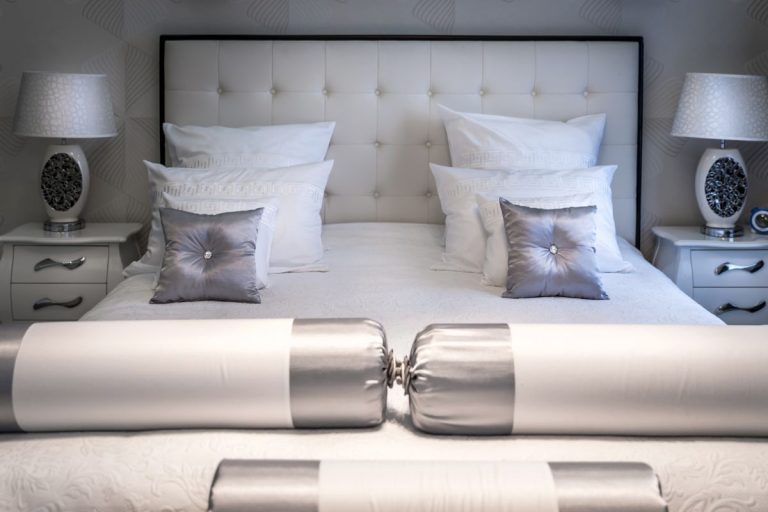Tea is one of the most beloved beverages on this planet. It is loved so much that drinking it has become a ritual in some countries. Thanks to this popularity, it has been studied for a long time.
There is firm evidence that tea is great for our health. And yet, most people seem to ignore the effects of tea on our body. It doesn’t help that there are many tea variants available, each with their own specific taste and effect.
Do you feel sleepy after drinking tea? It’s more common than you think.
Tea contains caffeine, the same stimulant found in coffee. This leads many people to wonder why it makes them sleepy. Shouldn’t it make them more alert? That’s what caffeine does after all. But tea contains much more than caffeine.
In this article, we are going to see why tea makes some people sleepy. We will also see how to counteract this effect, and how much tea to drink to avoid it completely.
What’s in Tea?
Drinking tea provides various nutrients to your body. Let’s see them in detail and try to understand their effect on our body.
Caffeine
Tea contains caffeine, which acts as a stimulant for our body. It makes us feel more alert, which is why many people love to drink coffee in the morning. It makes them more productive.
Caffeine affects many areas of our life. It blocks adenosine, the sleep hormone. It also stimulates the heart, increasing blood flow and blood pressure. There are other benefits associated with coffee drinking. Harvard’s School of Public Health published an article with caffeine’s effects on our body.
Tea contains about 1/4th of caffeine compared to coffee. While the latter has 40mg of caffeine per 100 grams, tea only has 11mg of caffeine per 100 grams.
It goes against common sense. Why would you feel sleepy after assuming caffeine? It should be the other way around.
While caffeine is supposed to make you more alert, there are factors influencing its effects.
Caffeine is a diuretic substance. Which means you become dehydrated more quickly. Dehydration is a common cause of tiredness. While coffee blocks our body from feeling adenosine, it doesn’t stop its production. Our brain will produce more adenosine, because it feels like the current one is not working. This leads to a more powerful feeling of doziness when caffeine’s effect wears off.
This brings us to the next nutrient found in tea: Theanine.
L-Theanine
Tea contains an amino acid called theanine, which gives us many mental benefits on us. It makes us sleep better, and some studies posit it has potential therapeutic effects in psychiatric disorders. It also enhances our cognitive abilities. It improves our memory and ability to focus.
It’s a natural element, and it’s very effective. That’s why many people take L-theanine supplements. It helps them relieve anxiety and sleep better.
Each tea has a different l-theanine value. The tea with the highest concentration of theanine is green tea.
Editor’s note: tea contains L-theanine. There’s another type of theanine called D-theanine, but we know very little about it. It’s not in tea anyway, so it’s beyond this article’s scope.
Theobromine
Theobromine is a natural compound found in many plants, including tea leaves. It helps protect the heart; it gives us energy, and it boosts our mood. Other benefits include boosting our respiratory system, and working as an anti-inflammatory.
However, we note that the quantity of theobromine in a cup of tea is minimal. It still gives us some of its benefits, but if you wanted them, there are plants with a higher concentration of this compound. Cocoa beans for example.
The Effects of Tea on Our Body
Caffeine and L-theanine combine to create a soothing effect for our body. Low doses of caffeine have a relaxing effect on our body, it’s on higher dosages that it makes us more alert. This explains why tea helps reduce anxiety. It contains very low caffeine, so it helps calm us.
Theanine is often used as a supplement to reduce anxiety. It has a soothing effect on our body.
Tea being a hot beverage contributes to the feel of tiredness.
All of these effects combine to make us feel sleepy after drinking it.
Naturally, the effects of tea depend on the type of brew you are drinking. There are a myriad of tea variants you can find in your local supermarket. We mentioned green tea earlier in the article as the variant with the most l-theanine, but there are others that will supply you with plenty of the amino acid. Examples include oolong, white tea, and black tea.
There are more exotic variants of tea that gives you a lot of l-theanine. These are all shaded teas, and most of them come from Japan. Variants with a lot of theanine include gyokuro and matcha. Both are green teas, but they undergo a different production process that better conserves the theanine in their leaves.
How to Combat Sleepiness
If you feel sleepy after drinking tea, but feel like you need to perform at your best, there are a couple of things you could do to prevent doziness.
Get Adequate Sleep at Night
This is obvious, but so many people still ignore sleep’s power. If you sleep well, you won’t feel tea’s effect as much. You’ll still relax, but at least you won’t feel like lying down for a nap.
Exercise
If possible, exercise right after drinking tea. Exercise makes us more alert, since it makes the body produce hormones that energize us.
Avoid Eating too Much
Eating is a classic thing that will make us feel sleepy. If we eat too much and drink tea at the same time, we will feel lethargic. Digesting requires a lot of energy.
Conclusions
Drinking tea makes you feel sleepy because of its components, but it doesn’t have to be that way. You can combat sleepiness with just a couple of steps.
Tea is a great ally in our daily life. It has a long-standing tradition, and we’ve studied it for long. It helps us power through the day and chill at night. There are many health benefits associated to drinking tea.
Now that you know why tea makes you sleepy, and how to avoid the feeling of doziness, you can drink all the tea you want without side effects. Well, somewhat. You can still overconsume caffeine by drinking too much tea. You’d need to drink an awful lot of it for it to happen though. Like, 3 or 4 big cups in a day.
Also Read:
- Why Does Coffee Make Me Sleepy? And The Solution That Works
- Elderly Falling Asleep While Sitting: What’s The Cause?
- How To Feel Better After Oversleeping: Overcoming the Grogginess
- 5 Best Teas That Will Lull You Into Sleep (2021 Updated)
- Green Tea Before Bedtime: Good or Bad Idea?
- Is It Possible Chamomile Tea To Improve Your Sleep Quality?
- Ice Cream Makes Me Sleepy (And How To Avoid That)

